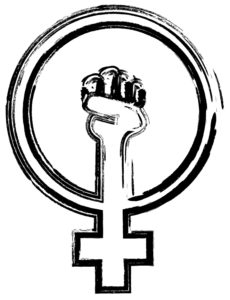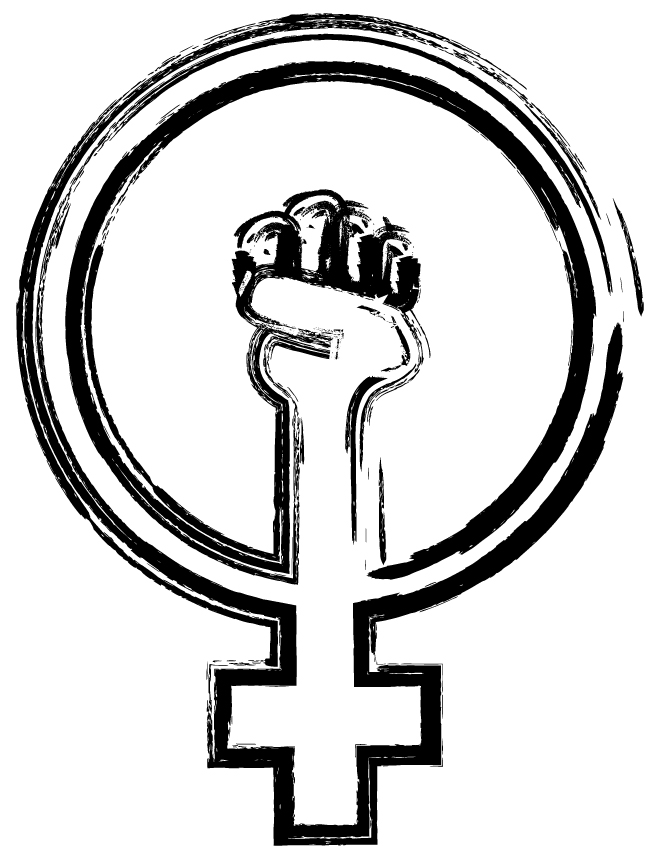Let’s talk about the big F word that either offends or empowers you. Feminism.
As of now, it can be a very scary word to take pride in or even associate yourself with. Most people assume if you are a feminist that means you are also a man-hater, bra-burner, misandrist who hates stay-at-home mothers and men who offer to pay for dinner or open the door for a female.
As someone who has proudly called themselves a feminist since I first read the definition, I can tell you I carry none of the previously mentioned characteristics. So what is feminism and what does it look like to be a feminist?
Merriam-Webster defines feminism as the theory of the political, economic and social equality of sexes.
So feminists advocate for and accept stay-at-home mothers, as well as stay-at-home fathers. Feminists also believe that paying for a meal or opening the door shouldn’t only be done because of your gender; it should be done by someone of any gender because they want to show kindness and appreciation for the other.
True feminism does not seek matriarchy; it seeks for the abolishment of gender rules. This means that yes, men can enjoy shopping, the color pink and watching the latest episode of The Bachelor without anyone questioning their sexual orientation or masculinity and women can choose to not wear makeup, join the military and play videogames without anyone questioning their sexual orientation or femininity.
What people often mistake on the other end, is that feminism means rejecting your masculinity or femininity, when really it is rejecting any form of gender assignment. What that means is, makeup is no longer a ‘girl thing’, it is just what it is and that is a cosmetic product used to alter our appearance. The makeup has no gender.
When people are talking about feminism, usually what they think of is women’s rights. Stuff like the wage gap, sexual assault, loss of education and career opportunities due to gender and while all of those are legitimate issues that need resolutions; men have a lot of social inequalities that also need to be talked about. So let’s talk about them!
Nowadays, women who enact more masculine traits and roles are accepted for the most part, maybe not always taken seriously, but we aren’t as offended by it. People think it’s adorable that their 8 year old niece is such a tomboy or that their sister who runs her own successful company is so accomplished. These scenarios are generally accepted.
Now let’s switch it up a bit. What about someone’s 8 year old nephew who only wants to wear pink t-shirts and play with their Cinderella Barbie doll? That offends a lot of people. We have all seen the news stories of people enraged or even threatening the parent of the child because they let him wear and do what he wanted too. Why do we generally accept that a person’s gender automatically assigns them to certain colors and items they can and should like?
What about someone’s brother who didn’t go to college, just married his long-term high school sweetheart and became a stay at home dad while his wife ran her own successful company. A lot of the time people see that as shameful and demasculinizing for the man. As if the wife now has dominance over their husband because she’s the breadwinner.
In this situation, over history, we have assigned the role of money-maker to the man and caretaker to the woman. Both roles can be incredibly hard and are equally as valuable, but because of gender assignment we tend to devalue one and hold esteem for the other.
Now if you were to ask just about anyone, “Do you believe that men and women should have equal political, economic and social opportunities?” most people would probably say that they do. After all it is 2016, not the 1950’s.

My point is, I find it interesting that most people would agree with the definition of feminism, but would never call themselves a feminist and when it really comes down to it, maybe people find comfort in gender assignment because it is so familiar.
Breaking gender rules has been done, but not so often and rapidly and I can’t help but wonder, what does a world in the absence of gender roles look like?
Hannah Hamlin
Reporter

